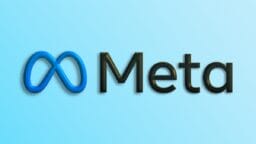The Evolution of AI Engagement at Yale University
Within the esteemed corridors of Yale University, a burgeoning movement of student-led artificial intelligence organizations is fundamentally altering the fabric of campus life. Amidst fervent discussions surrounding AI’s impact on education, recent insights from the Yale Daily News reveal that entities such as the Yale AI Society and the Machine Learning Club have experienced a remarkable increase in memberships, effectively doubling within the past year.
Enthusiastic undergraduates are drawn to these groups, eager to delve into a spectrum of topics ranging from ethical algorithms to the nuances of generative tools. This trend mirrors a nationwide phenomenon where widespread enthusiasm for AI collides with apprehensions regarding academic integrity and the specter of job displacement.
Students are engaging in more than mere experimentation; they are orchestrating hackathons, speaker series, and interdisciplinary projects that fuse AI with areas like philosophy and law. At Yale, for example, dialogues within the AI Ethics Working Group often extend into energetic late-night debates, challenging the notion of whether innovations like ChatGPT detract from or bolster critical thinking.
Faculty perspectives, cited in the Yale Daily News report, suggest that these organizations are addressing voids in the formal curriculum, providing pragmatic experiences as the academic landscape struggles to accommodate rapid technological advancements.
The Proliferation of AI Initiatives Amid Ethical Challenges: As student-led AI organizations swell to unprecedented numbers, universities confront the delicate task of integrating these grassroots initiatives into formal academic structures, seeking a balance between innovation and the necessary oversight to mitigate unintended malpractices in educational contexts.
National surveys highlight this burgeoning momentum. According to the 2025 Student Generative AI Survey from the Higher Education Policy Institute (HEPI), a striking 92% of undergraduates engage with AI tools in their studies—up from a mere 66% the year prior—catalyzing the development of specialized clubs.
Concurrently, institutions like Stanford and MIT are fostering similar discussions about AI’s implications for society; updates by users such as SingularityNET on X (formerly Twitter) illuminate global workshops focused on AGI safety, inspiring replicative student initiatives.
However, this rapid expansion is not devoid of friction. Within Yale classrooms, a dichotomy has arisen among professors regarding AI policies. While some implement outright bans on these tools, others incorporate them into assignments.
This tension was further illuminated by a recent Campus Technology analysis of a Digital Education Council survey, revealing that 86% of students routinely utilize AI.
The discourse often converges on issues of plagiarism detection, with technologies like Copyleaks gaining traction, as highlighted in their 2025 AI in Action report, which cautions against the peril of “skill atrophy” due to excessive dependency.
Navigating Classroom Controversies and Policy Adaptations: As AI technologies permeate the daily lives of students, educators, and administrators are compelled to redefine notions of cheating and creativity, cultivating evolving guidelines that aim to leverage technological benefits while preserving academic integrity.
Industry experts attribute economic stimuli to this burgeoning student zeal. A 2024 article in the Frontiers journal, further developed in 2025 dialogues on X by platforms such as WAGMI HUB, dissects the transformative potential of AI on career trajectories.
Consequently, various groups are hosting panels addressing themes like open-source versus proprietary models. At Yale, these discussions expand to encompass broader societal implications, with collaboration between clubs and external specialists designed to simulate AI-driven policy scenarios.
Tensions appear most pronounced in interdisciplinary contexts. For instance, Yale’s debate teams increasingly engage in deliberations surrounding AI-related topics, such as the ethics of autonomous weaponry.
These discussions are often informed by real-time events, including a July 2025 report by WebProNews highlighting AI surges across U.S. classrooms and the resultant equity concerns. Student perspectives, as reported by the Yale Daily News, showcase a blend of excitement for personalized learning alongside fears of exacerbating achievement disparities.

Future Ramifications for Higher Education: The evolution of AI student initiatives into formidable forces on campus may catalyze institutional transformations, encompassing curriculum revisions and ethical AI certifications, potentially setting benchmarks for how universities worldwide navigate an increasingly AI-centric landscape.
Looking to the future, analysts from the National Center for AI, in their 2025 Student Perceptions report, forecast that by 2026, AI literacy will mirror the essential nature of digital competencies from the early 2000s.
Yale’s flourishing student groups, amidst the ongoing debates, exemplify this paradigm shift, positioning participants as both advocates and critics of the technological innovations reshaping their environment. As articulated by a member of the Yale AI Society to the Yale Daily News, “We’re not merely studying AI; we’re interrogating its essence.”
Source link: Webpronews.com.






